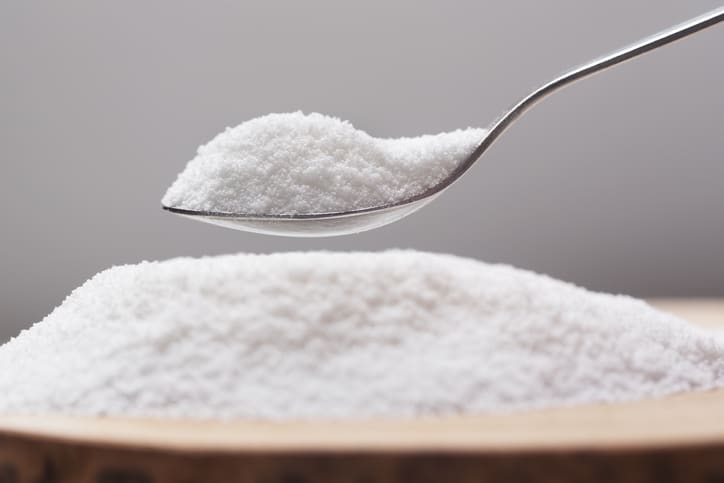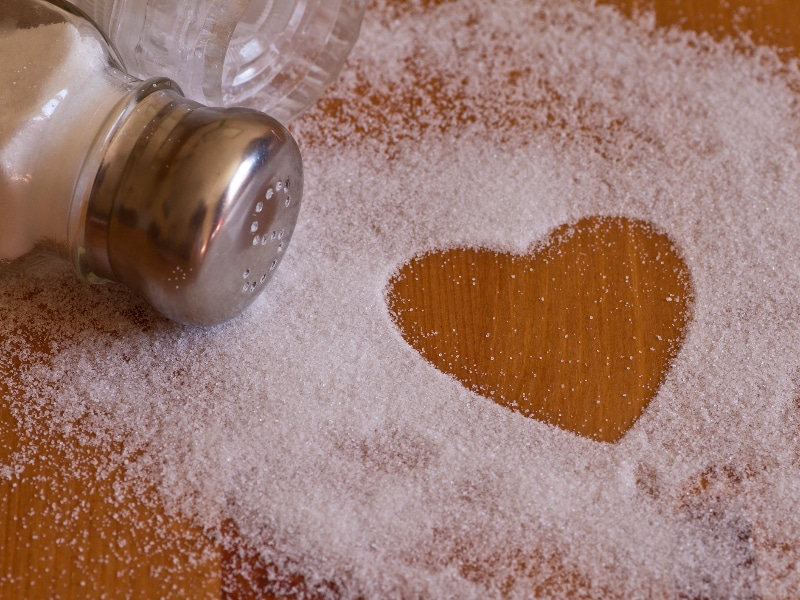Artificial sweeteners are often sweeter than table sugar and contain few, if any, calories, but they all share something in common with sugar. While safe in moderation, they can cause health problems when we overindulge.
And the evidence is growing that some sugar substitutes may be worse for our health than sugar, especially for patients with heart disease, diabetes, and bowel disorders. In fact, in May 2023 the World Health Organization warned against using them for weight management, saying that long-term use of artificial sweeteners could increase the risk of type 2 diabetes and cardiovascular disease.
“Replacing free sugars with non-sugar sweeteners does not help people control their weight long-term,” says Francesco Branca, director of WHO’s department of nutrition and food safety. “People should reduce the sweetness of the diet altogether, starting early in life, to improve their health.”
Erythritol is one of the newer non-nutritive sweeteners — a fancy way of saying they provide no nourishment — to gain popularity. Found in sweeteners that contain stevia and monk fruit, it’s a sugar alcohol that naturally occurs in watermelons, grapes, peaches, and pears, and our bodies even create it naturally.
But that doesn’t necessarily make what comes in those little green packets natural or healthy.
“The amount made in our body is a million times less than what is digested when we consume it as an artificial sweetener,” says Lizzie Devitt, MS, wellness coach at Methodist Richardson Medical Center.

RISKY FOR HEART PATIENTS
At high concentrations, erythritol can increase the risk for cardiovascular disease and stroke, Devitt says.
“The evidence isn’t entirely conclusive,” she says, “but research suggests when there is a high amount of erythritol in the blood, platelets become hyper-responsive, which motivates the platelets to form blood clots. That, in turn, places one at risk for a stroke or heart attack.”
A study published this year in the journal Nature Medicine showed a correlation between erythritol and heart disease. However, its participants all suffered from cardiovascular disease before the study, so further research is necessary.
Erythritol is not as sweet as sugar, so you may have to add more to your coffee to get the same effect, and you may be consuming it in processed foods without even knowing it. And that might lead to headaches and digestive problems.
“The amount that causes these symptoms varies, but if you notice any of these signs after consuming sugar alternatives, reduce the amount you’re using or stop using them,” Devitt says.
The Federal Drug Administration recognizes erythritol as safe for healthy people when they consume up to 30 grams each day. Each single-serve packet contains about two grams.

OTHER SUGAR SUBSTITUTES
With every artificial sweetener that gains popularity, research seems to follow suggesting that it’s not entirely healthy.
Here’s a quick look at a few other sugar substitutes that have been approved by the FDA:
- Aspartame (NutraSweet, Equal) is the sugar substitute in Diet Coke, among other zero-calorie sodas, and peaked in usage during the 2000s, when it replaced, by some estimates, up to a billion pounds of sugar in the American diet. When ingested, this amino acid breaks down into methanol, which in turn can break down into formaldehyde – both of which are toxic. That said, aspartame has never been linked conclusively to any health problems, with one notable exception: people with phenylketonuria (PKU), a rare genetic disorder in which the body can’t break down an amino acid found in aspartame.
- Saccharin (Sweet’N Low) was first discovered by accident in 1897 and is 300 times sweeter than sugar. It was banned in 1981 because it causes bladder cancer in rats. But that ban was later reversed. “The FDA reviewed numerous safety studies but found no evidence of health-related harm toward humans,” Devitt says.
- Sucralose (Splenda) is unique among sugar substitutes because it’s made from sugar that is tweaked chemically (and bonded with chlorine) to make it 600 times sweeter. It’s also heat stable, meaning it can be used in baking, unlike other artificial sweeteners. The drawback is that research suggests it alters gut bacteria, at least in rodents. Over the long term, inflammation in the intestines can cause a host of health problems, including diabetes.

SIDE EFFECTS FOR SOME
For anyone with a bowel disorder, sugar substitutes can cause your symptoms to flare up, so it might be best to stay away from them entirely if you have inflammatory bowel disease or irritable bowel syndrome.
Artificial sweeteners can also cause headaches and fatigue by fooling the body into thinking it’s taking in sugar. For some people, this could trigger an insulin response, a resulting drop in blood sugar levels, and a migraine, in severe cases.
Finally, because some artificial sweeteners are so much sweeter than sugar, they can create an addiction to sweets.
“When ingested on a regular basis,” Devitt says, “the consumer’s taste buds can develop a higher tolerance for sweets, which then can form a new craving for sweeter drinks and foods over time.”

SAFE IN MODERATION
With all these precautions in mind, artificial sweeteners can be a safe way to cut back on calories and manage your weight — when consumed in moderation.
“Since most sugar substitutes are sweeter than natural sugar, you don’t have to use as much of it to get the job done,” Devitt says. “For example, if you swap sugar for Stevia, a teaspoon can substitute for an entire cup of sugar, and it comes with zero calories.”
They’re also easier on your teeth. Non-nutritive sweeteners are noncariogenic, so they won’t cause cavities or tooth decay like sugar does.
That said, there are alternatives to sugar substitutes if you want to take a break from them altogether, while also avoiding table sugar.
Devitt recommends a few healthy options:
- Agave has vitamin B6 and contains phytonutrients
- Brown sugar contains slightly fewer calories than white table sugar, and it’s rich in iron and calcium
- Coconut sugar contains fiber and helps balance your blood sugar
- Honey contains antioxidants such as flavonoids and phenolic acids, anti-inflammatory properties, and anti-bacterial agents
- Pure maple syrup also has antioxidants, including zinc, magnesium, potassium, and calcium






